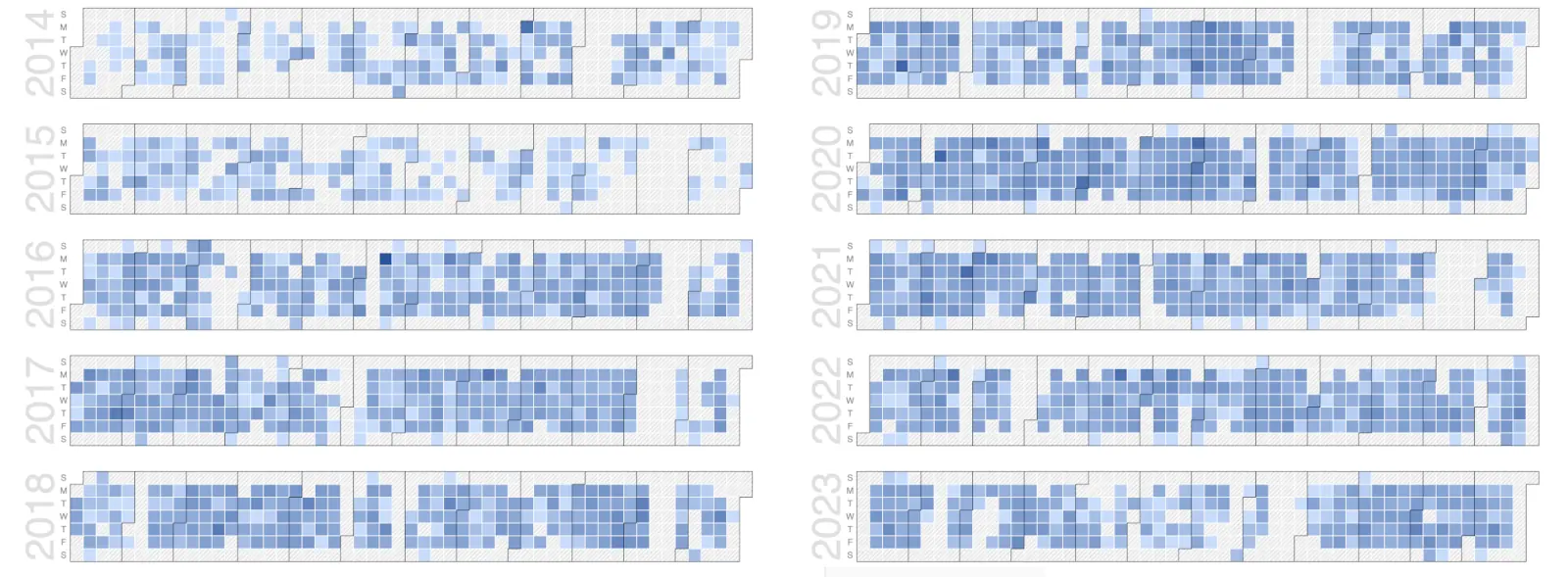Estimates for the dynamic range (the maximum perceivable contrast between light and dark) of human eyes vary depending on the source, from 1:100 to 1:1000 or more for static contrast. Dynamic contrast, where the eye moves around the scene and the iris adjusts in size is many orders of magnitude larger - with sufficient adaption time we can switch between bright daylight (10^8 cd/m^2) and faint starlight (10^{-6} cd/m^2), a range of 10^{14}!
In comparison, standard computer screens display images encoded using 8-bit color channels, for a maximum of 256 brightness levels. This is why photos of very vivid ...
